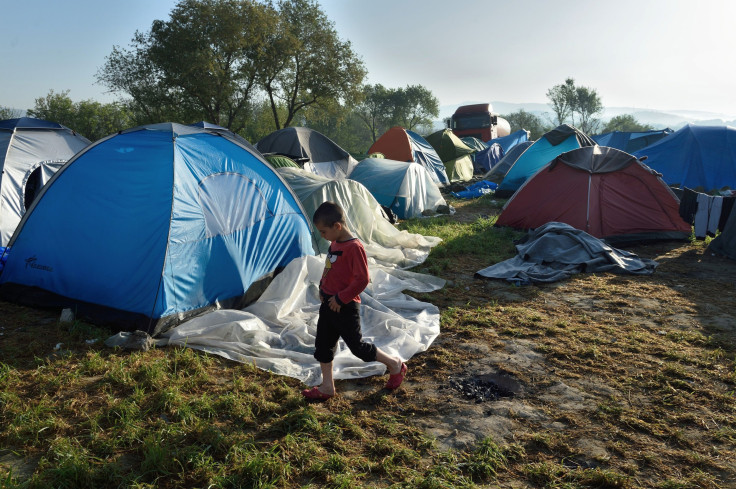How Much Does The Refugee Crisis Cost? Rich Countries Increased Aid To Cope With Migration Influx

The world’s richest countries increased their aid spending in 2015, in part because of a doubling of refugee-specific aid to cope with an ongoing migration crisis in Europe, the international Organization for Economic Cooperation and Development said in its annual report released Wednesday. With more than 1 million migrants and asylum-seekers who arrived to Europe in 2015, nations needed to increase their allotted refugee spending in order to provide housing, food, medical care and additional immigration personnel.
“Countries have had to find large sums to cover the costs of an historic refugee crisis in Europe, and most have so far avoided diverting money from development programs,” Secretary-General Angel Gurría of the Organization for Economic Cooperation and Development said. “These efforts must continue. We also welcome that more aid is being provided to the poorest countries,” she added.
Overall aid spending increased 6.9 percent compared to 2014, partially because of the $12 billion spent on coping with the refugee crisis. Individual nations have also diverted money outside of their aid programs to assuage the cost of hosting refugees, meaning that their budgets for development projects were not significantly altered.
The majority of people who crossed from Turkey or North Africa into Greece or Italy in 2015 were bona fide refugees, according to the United Nations, which defines a political refugee as someone fleeing violent persecution. Escalating conflicts throughout North Africa and the Middle East, particularly in Syria where a civil war has entered its fifth year, contributed to the growing refugee population worldwide.
Of the 34 member countries of the Organization for Economic Cooperation and Development, more than half are in Europe, which has found itself at the center of the refugee crisis. Germany, in particular, has been a popular destination for asylum-seekers, owing to its strong economy and welcoming chancellor, and the northern European country has increased its national spending on refugee care, expecting to spend around 17 billion euros, or approximately $19.2 billion, on refugees in 2016.
© Copyright IBTimes 2024. All rights reserved.












